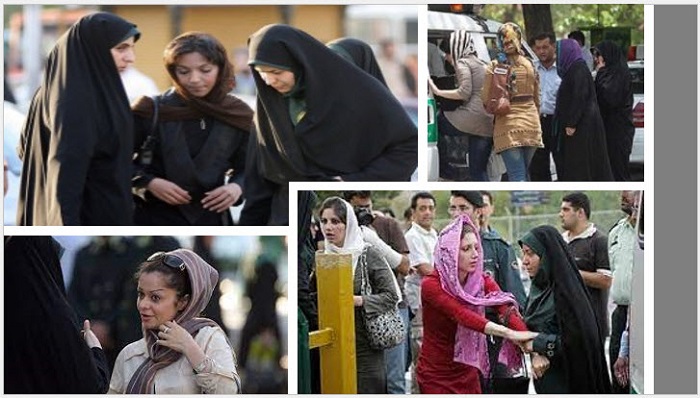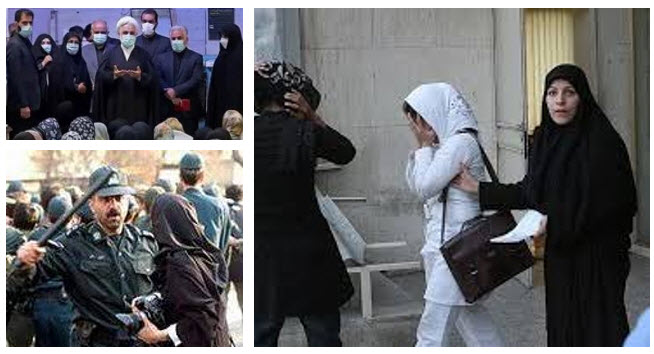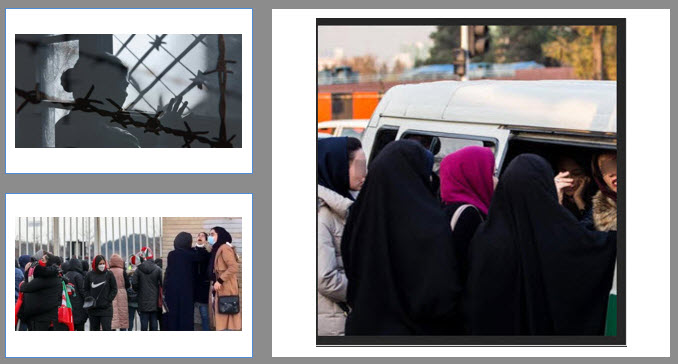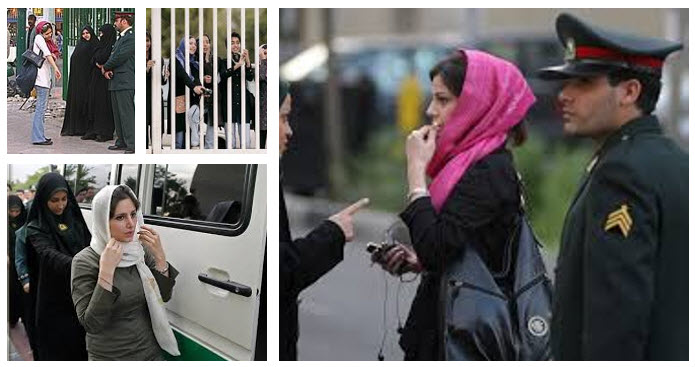

“Hijab of women, Hijab of women, Hijab of women” This is a phrase that has been repeated by the Iranian regime’s media on a regular basis, albeit with varying degrees of intensity. This issue appears to pose a significant threat to the regime, as Ahmad Alamolhoda, the regime’s representative in Mashhad, previously stated, “The leadership ordered fire at will, therefore if a woman in the street removes her headscarf, she must face the protests of the people and see that she has no place among the people.
Be sure to wear two scarves in this case, as this is the method of enjoining the good and forbidding the evil.” The phrase “fire at will” in this context means that the regime’s forces and thugs are given carte blanche to commit any kind of savagery against women and that the regime’s laws not only support and aid them but also give them a sense of impunity.
The question is why does the regime continue to threaten women in the country who wear hijabs on a regular basis? The truth is that the regime was never concerned about women’s chastity or dignity.

The ‘obligatory hijab’ is nothing more than a cover for the oppression of women in Iranian society. Women have emerged as leaders and forerunners in each protest that has taken place in recent years. When the regime loses control in the face of growing uprisings, it resorts to escalating women’s repression in order to keep society under control.
It’s no coincidence that the recent Abadan protests coincided with the regime’s brutal repression of women who disobeyed the regime’s hijab laws.

“However, experts emphasize that this type of police behavior and comments from officials such as the Secretary of the Kurdistan Command for enjoining the good and prohibiting the evil not only do not solve the issue of hijab in the country but also exacerbate the feeling of insecurity in society in the current situation,” they added.
On June 13, the state-run Etemad daily quoted journalist Abbas Abdi, writing, “The solution to social problems is not necessarily in legislation and law enforcement, some issues get worse with these policies, rather being improved. This level of resentment and hatred for an issue that is beyond the scope of public order is one of the wonders of governance. Not only does this not work, but it also has the opposite effect.”These warnings demonstrate that, in today’s society, repression in response to women breaking the hijab rule has no effect on society.

MEK Iran (follow us on Twitter and Facebook), Maryam Rajavi’s on her site, Twitter & Facebook, NCRI (Twitter & Facebook), and People’s Mojahedin Organization of Iran – MEK IRAN – YouTu








